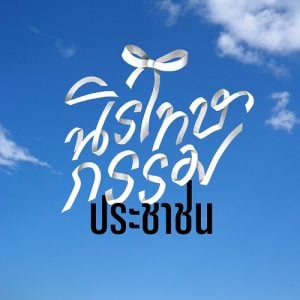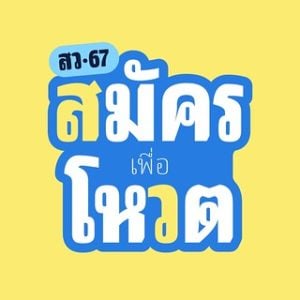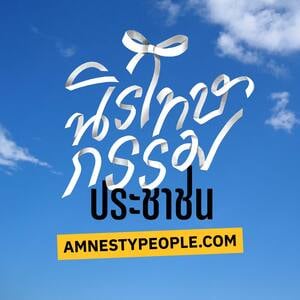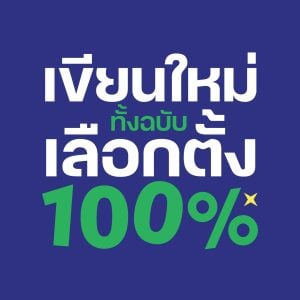Defamation law and the Computer Crimes Act B.E. 2550 [C.E. 2007] (CCA) continue to be weapons used by both the state and private actors to stifle or retaliate against dissent. In 2014, lawsuits arose from the exercise of the right to freedom of expression, the act of giving an interview to the press, stating one’s opinions during a seminar, and making critical comments on public interest issues.
New lawsuits filed in recent the past years underline how vulnerable the media, activists, and academics become when they attempt to convey the truth to society. Similarly, grassroots villagers who simply want to exercise their right to freedom of expression in defense of their rights and have taken the lead in creating a culture of criticism to hold state and private agencies to account also face significant threats.
New libel cases and offences pertaining to the CCA in 2014
Two cases filed by Thung Kham Company Limited (TKL) against villagers in Loei
The protracted conflict between Thung Kham Company Limited (TKL), which has been given concession rights to operate a gold mine in Wang Saphung district of Loei province, and the villagers who have suffered environmental impacts from the mine has led to the filing of libel suits. After the clashes between the villagers and a group of men in black who wanted to transport ore through the village on 15 May 2014, a number of media outlets and organizations have covered the issues in the area.
TKL filed two cases against two villagers for committing defamatory libel under Articles 326 and 328 of the Criminal Code. The cases stemmed from an interview which Suraphan, or “Mai,” gave reporters from TNN24 about the arson attack on the mine workers’ camp and an interview whichPorntip, or “Pop,” gave reporters from Nation TV about the environmental impacts faced by the villagers.
It should be noted that in these two cases, TKL has chosen to file the cases with the Phuket Provincial Court where its company branch is based. This has created a significant burden for the defendants who must travel a long distance to fight the charges and must leave their community, and therefore risk their lives.
On 4 December 2014, after negotiations between community members and TKL, representatives from the Wang Saphung community agreed to sign an MoU with TKL’s Managing Director in which the company agreed to withdraw all cases and the villagers agreed to allow the company to transport the remaining ore from the mine site. The MoU was made in the presence of the Loei Governor, the Commander of the Loei Military District, the Loei Public Prosecutor, and the Wang Saphung District Chief Officer on 8 December 2014. TKL had their attorney withdraw all the cases against the villagers.
The Ministry of Energy filed a suit against ML Kornkasisat
On 15 August 2014, Ekkasak Yanothai, with authorization from the Ministry of Energy, filed a case against ML Kornkasisat Kasemsri, a freelance critic on energy topics for defamatory libel and for violating Article 14(1) of the CCA. The case stemmed from a Facebook post in “Talk with Mom Korn” which stated that the diesel fuel sold to Lao was cheaper than its retail price in Thailand. The Ministry of Energy claimed to have suffered from this remark.
After a pretrial prima facie hearing, the Court accepted the case. The defendant was scheduled to give evidence on 3 November 2014. Both parties appeared at the Court and agreed with the Court to hold four hearings for prosecution witness examination and nine hearings for defense witness examination. The Court will allow hearings in absentia since the defendant may not be able to be present in the Court during all the hearings.
The Songkhla Administrative Court sues Isra News
On 25 August 2014, Mr. Direkrit Jankrongtham, Secretary General of the Office of the Administrative Courts, filed a case against the ISRA Institute Thai Press Development Foundation, Mr. Prasong Lertratanawisute, Director of Isra Institute and Mr. Sanoh Charoensuk, Editor of Isra News, for defamatory libel and violation of Article 14(1) of the CCA. The case stemmed from a report which claimed that Direkrit had sent a “memo” to the Commander of the Royal Thai Police asking him to privilege a police officer during the annual reshuffle.
On 28 August 2014, it was reported that Direkrit asked for damages amounting to 50 million baht since after the criminal case was filed, the defendants did not cease reporting on the matter.
On 10 November 2014, the Criminal Court dismissed the case and claimed that the plaintiff’s act should be subject to criticism by any person. Further, given the stature of the plaintiff as someone appointed by the Secretary General of the Office of the Administrative Courts, he should be willing to be subject to criticism. The reporting and publication by the three defendants was deemed as a fair expression of opinions and a statement on a matter that should be subject to public criticism.
TV3 sues Supinya Klangnarong
On 8 September 2014, Bangkok Entertainment Co., Ltd. (TV3) filed a case against Supinya Klangnarong, a member of the National Broadcasting and Telecommunications Commission (NBTC) for malfeasance, defamatory libel and violation of Article 14(1) of the CCA. The case stemmed from the interviews she gave to various media outlets regarding the conflict between TV3 and NBTC due to the shift of content broadcasting to digital TV.
On 1 December 2014, after a pretrial hearing by the Criminal Court, the plaintiff’s attorneys decided to withdraw the case. The two parties were able to negotiate and to refrain from pursuing any criminal or civil suits. The Court agreed with the withdrawal of the case.
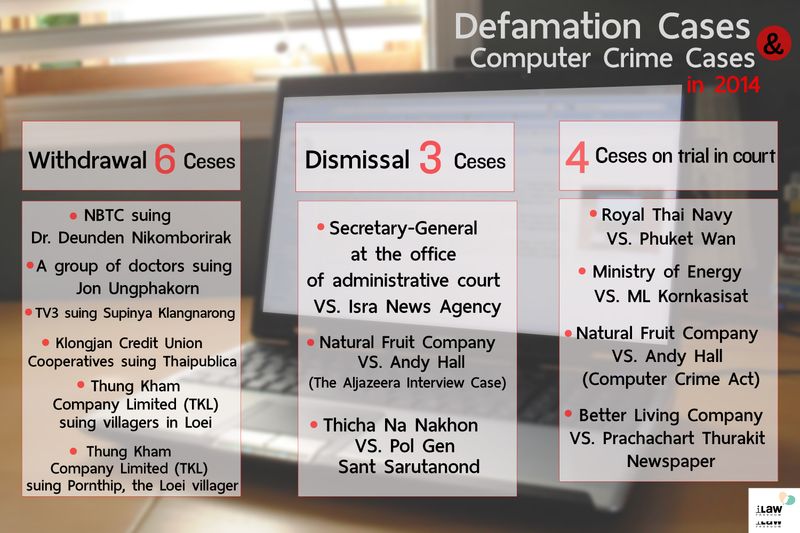
Major updates regarding libel and CCA cases in 2014
The Appeal Court upheld the verdict to convict villagers from Nong Saeng for defaming the President of the TAO: The case stemmed from an incident in 2010 in which the demonstrators made a public speech and mentioned that the President of the Tambon Administration Organization (TAO) was a lapdog of the power plants. In July 2013, the Court of First Instance had already found the three villagers guilty as alleged for insulting the persons in their presence and sentenced them to 15 days imprisonment and a fine of 1,000 baht each, with a suspension of the punishment for two years.
On 23 January 2014, the Appeal Court upheld the verdict of the Court of First Instance claiming that since all the prosecution witnesses had not had any prior conflicts with the defendants, there was therefore no reason to cast any suspicion that they would falsely incriminate the three defendants and the argument of the defendants was therefore not credible.
Withdrawal of the NBTC’s cases against Dr. Deunden Nikomborirak and Nattha Komolvadhin: These cases stemmed from an incident in 2013 in which the NBTC Office filed a case against a researcher from the Thailand Development Research Institute (TDRI) and a TV host of “Here is TPBS” in which Dr. Deunden made a comment about the policy of the NBTC to “prevent the termination of SIM card service”.
On 10 February 2014, after a pretrial hearing, the Criminal Court accepted to hear the case on 17 March 2014 while encouraging the parties to settle the case. On 26 September 2014, after Mr. Sutthipon Taweechaikarn, one of the plaintiffs in this case, resigned as a NBTC member and became a member of the Office of the Auditor General of Thailand, the Court fixed a hearing for mediation. Both parties managed to settle the case and forgave each other and pledged to not pursue any legal case. Thus, the plaintiffs have withdrawn the case against the defendants.
The Appeal Court sentenced Katha to jail: Katha was accused of posting a rumor regarding the reasons for the stock index slump in 2009. He was charged with violating Article 14(2) of the CCA. This case stemmed from an allegation that the spread of the news caused public panic. The Court of First Instance sentenced him to four years imprisonment. On 5 March 2014, the Appeal Court altered the sentence from three years per count with the jail term reduced by one-third by the Court of First Instance to two years per count, or altogether four years, which was then reduced by one-third to two years and eight months.
On 10 March 2014, the Supreme Court denied the right to bail of the defendant claiming that since the Appeal Court sentenced him to two years and eight months, he might flee if he was granted bail.
The Royal Thai Navy’s libel case against Phuket Wan and two reporters (Alan and Chutima): An online news agency based in Phuket has been sued by the Royal Thai Navy for defamatory libel and violation of the CCA after publishing a report by Reuters which claimed that some navy officials were involved with the human trafficking of the Rohingya.
On 17 April 2014, the two reporters were indicted in the Phuket Provincial Court and witness examination will take place during 14 – 16 July 2015.
After the indictment, an effort was made by the National Human Rights Commission to mediate, but no agreement could be reached. In October, the 3rd Navy Area informed local media in Phuket that no further news about the case against Phuket Wan would be given and no journalists from Phuket Wan would be allowed to cover any news inside the premises of the Royal Thai Navy since the prior reporting by the newspaper damaged the reputation of the Royal Thai Navy.
Verdict affirmed to acquit Thicha Na Nakhon against whom a libel suit was filed by Pol Gen Sant Sarutanond: The case began in 2003. On 22 April 2014, the South Bangkok Criminal Court delivered the verdict of the Supreme Court. In brief, the Supreme Court deemed that prior to the giving of an interview and writing of articles in newspapers by the defendant, the behavior of the plaintiff had already been widely reported in the media. In this case, all three levels of the Court acquitted the defendant.
Pretrial hearing postponed in the case filed by Better Living against Prachachart Thurakit: In this case, the websites of Prachachart Thurakit and Bangkok Business published news about an attempt by a foreign company which wanted to register a country domain (.thai) and the company was mentioned. Thus, the case was filed containing the charges of libel and violation of the CCA.
Initially, the pretrial hearing was scheduled for 19 May 2014, but the plaintiff asked to have it rescheduled to 4 August, and it was rescheduled again to 19 January 2015.
Libel suit against Andy Hall (The Aljazeera Interview Case) dismissed: A researcher working on the rights of migrant workers, Andy Hall, was sued by Natural Fruit for libel stemming from an interview he gave to Aljazeera regarding the working conditions of migrant workers in a pineapple processing plant in Thailand. He was sued in both criminal and civil cases for three cases and in another case for violation of the CCA.
Prosecution and defense witness examination took place during 2 – 10 September 2014 at the Phra Kanong Provincial Court and on 29 October, the Court ruled to dismiss the case claiming that the inquiry process was unlawful. The basis for this ruling was that Andy was in Burma during the inquiry, and the Office of the Attorney General (OAG) instructed that a public prosecutor be present during the inquiry, but in reality, there were only police officials present.
Though one case has been dismissed, three other cases against Andy Hall remain. On 17 November 2014, the Criminal Court held a pretrial hearing on the violation of the CCA case. Representatives from foreign missions including staff from the Finnish Embassy and human rights lawyers from Canada were present in the Court, but Andy was not.
Prior to the commencement of the hearing, the Court asked the parties to mediate, since the case had not yet reached the stage of indictment, but no agreement could be reached. The plaintiff insisted that his factory suffered massive damage after the research by the defendant was disclosed to public. Thus, the next pretrial hearing was set for 2 February 2015.
Withdrawal of a case filed by the Klongjan Credit Union Cooperatives against Thaipublica: In this case, Thaipublica, an investigative news agency, had published an interview with the Executive Committee Chairperson of the Cooperatives and exposed a lack of transparency in its operations. Mr. Suppachai Srisuppaaksorn, former Chairperson of the Cooperatives, filed a case of libel and violation of the CCA in September 2013.
On 2 June 2014, during a pretrial hearing held in the Minburi Provincial Court, the plaintiff decided to withdraw the case since the current board of the Cooperatives met on 11 April 2014 and agreed to withdraw the case. The Court granted the withdrawal.
Withdrawal of a libel case filed by a group of doctors against Jon Ungphakorn: In this case, Jon Ungphakorn and others, altogether nine persons, were sued for distributing a briefing during the launch of the “Health Lovers Club” on 25 January 2012. The briefing was alleged to be defamatory to staff members of the Federation of Healthcare Workforce of Thailand (FHWT) since they were accused of intending to undermine the universal healthcare scheme.
On 19 August 2014, during a witness examination by the Nonthaburi Provincial Court, the Court recommended for the two parties to mediate. First, he asked the six defendants and attorneys to leave the room and talked with the plaintiff and then invited them back in to hear the result of the mediation. It turned out that the plaintiff agreed to withdraw the case provided that a joint statement was made to explain the matters. Both the plaintiff and the defendants agreed to write a joint statement and the Court granted the withdrawal of the case.
Observations and trends in 2014
Observation 1: Most of the libel litigations have been settled or withdrawn. Of twelve cases in 2014, six were withdrawn and two were dismissed. Of the four pending trial, two have been dismissed and one sentenced with a suspended term.
From these statistics, it is clear that libel suits have been used as retaliation in response to the disclosure of information undesirable to the plaintiffs. Litigation has been used to simply protect the image of the subjects of criticism or to hinder the activism of the defendants or their movements as well as to prevent similar acts from happening again. There was no intention to either penalize an individual or demand compensation. If there is any change after a case has been filed, and if an agreement can be reached, the plaintiffs would rather agree to withdraw the cases.
Observation 2: It is clear that the plaintiffs, whether individuals or organizations, are more powerful than the defendants. This is the clear case, for example, with TKL which filed a case against villagers affected by gold mining, and Natural Fruit which brought the case against Andy Hall, a human rights researcher.
In addition, 2014 held an emerging trend of state agencies acting as plaintiffs and bringing libel cases against members of the private sector for their criticisms of the agencies or officials, i.e., the case by the Ministry of Energy against ML Kornkasisat Kasemsri, a freelance academic, the NBTC’s case against Deunden Nikomborirak, a researcher from TDRI and Nattha Komolvadhin, a TV host from “Here is TPBS” and the Royal Thai Navy’s case against Phuket Wan and the Office of the Administrative Courts against Isra News, etc.
The question is whether or not it is justified for a state agency responsible for delivering public services which may affect people to invest their resources in taking legal actions against their critics? Or should they just allow people to criticize them in terms of their performance of duties and not treat it as a slight?
Observation 3: Article 14(1) of the CCA, which carries a maximum penalty of fifteen years in jail, is used along with other libel measures, even though the CCA was originally developed to suppress offences against computer systems, rather than to censor online content. The application of the law different from its original purpose shall only incur greater burdens for defendants who will have to procure additional money to both apply for bail and carry out their legal struggles. This is before even mentioning that defendants may have to face a harsh punishment which might not serve the purpose of the plaintiffs anyway.




